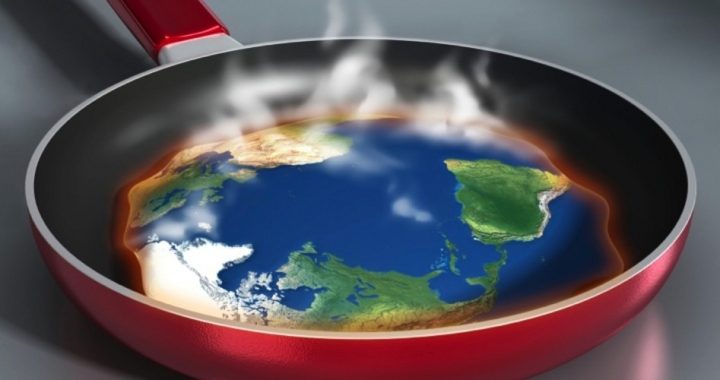
Earth is experiencing an unprecedented warming period, according to a report published in the March 8 issue of Science Magazine. Researchers from Harvard University and Oregon State University studied 73 land-based and marine fossil and ice samples to construct a record of global surface temperatures for the last 11,300 years, concluding that today’s temperatures are higher than most of that time period. Based on current trends, the report’s authors predict potential record-breaking levels by the end of this century.
The article is making headlines, especially since it attributes the heat spike to human-caused global warming. The Wall Street Journal reported, “The study points to human activity as the cause, because the suddenness of the shift in temperature appears to be out of whack with long-term trends. CNN‘s Ben Brumfield opined, “It is a good indicator of just how fast man-made climate change has progressed.” In comments on the research, The New York Times quoted Pennsylvania State University climatologist Michael Mann saying, “We and other living things can adapt to slower changes. It’s the unprecedented speed with which we’re changing the climate that is so worrisome.”
However, these and other media sources ignore evidence to the contrary. Dr. David Whitehouse of the Global Warming Policy Foundation points out holes in this latest research and its conclusions. Whitehouse, former BBC Science Correspondent and former Science Editor of BBC News Online, disagrees that warming of the past few decades is unusual. “There are many studies that suggest that the Medieval Warm period of about 1,000 years ago was comparable to today’s temperatures,” he said. In fact, the Center for the Study of Carbon Dioxide and Global Change conducts an ongoing Medieval Warm Period Project, compiling peer-reviewed papers in an effort to determine the degree and extent of warming from about 950 to 1250 A.D. So far more than 1,200 scientists representing some 500 institutions in 46 countries agree that the Medieval Warm Period was global in extent and warmer than the present.
Whitehouse criticizes the researchers for using such a small data set “with very poor sensitivity to temperature events that take place on the scale of centuries” and comparing it to much more precise temperature records of the past 150 years, especially considering the data is meant to account for the entire globe. A study published on March 4 in Quaternary Science Reviews drives this point home. A review of sediment cores in an area of Russia north of the Arctic Circle finds the highest temperatures at that location in the past 4,500 years occurred between 2,800 and 3,700 years ago and were roughly 3.8 degrees Celsius warmer than modern temperatures.
Though press reports emphasize the conclusion that current temperatures are higher than 90 percent of the Holocene period, the time span covered in the Harvard/Oregon State study, Whitehouse found discussion buried deep in the research paper revealed more reasonable figures. Accounting for possible errors, the scientists actually concluded temperatures in the decade 2000-2009 were warmer than 72 percent of the Holocene. Whitehouse says theirs is a very glass-is-half-empty approach to reporting. “Another way to put this is that current temperatures are colder than 28 percent of the Holocene,” he wrote. “According to this research the temperatures seen in the 20th century were about average for the Holocene.”
The study’s authors blame so-called greenhouse gases, but Whitehouse notes industrial emissions prior to 1950 were insignificant and do not account for the current global temperature rise that began in the 19th century. In fact, Earth has been warming gradually since the end of the Little Ice Age in the 17th century. However, he credits the paper for “casting doubt on the statements often made that it is currently warmer than it has been for thousands of years.”



